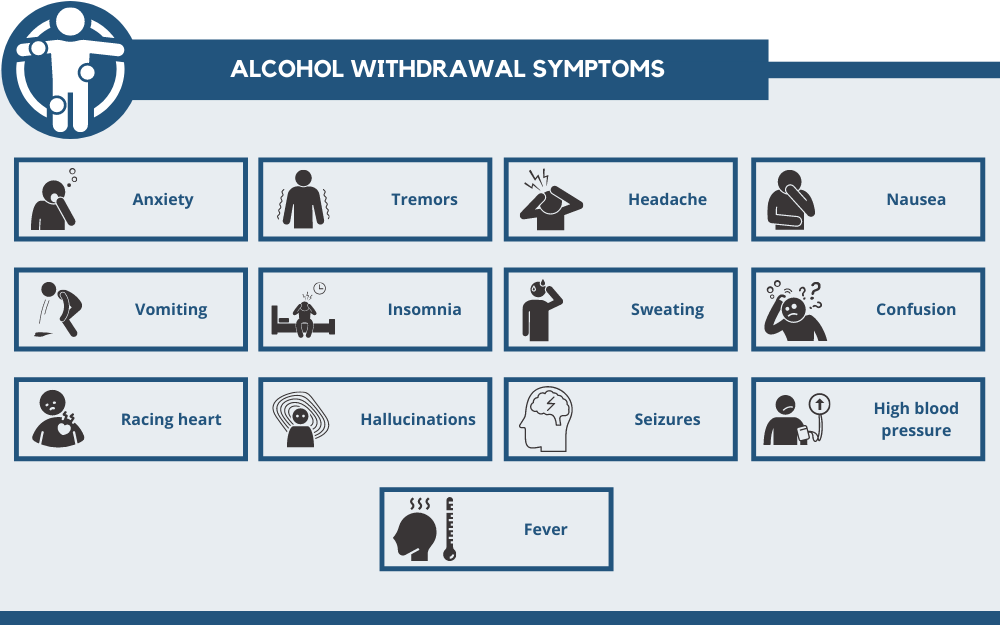Alcohol is a normal part of life for many adults across the globe. It is consumed during celebrations, dinners, gatherings, and other events. Alcohol makes people feel good, connect with others, and even relax after a long day. Although alcohol is legal for purchase and consumption for adults over the age of 21, alcohol is also extremely addictive when it is abused.
According to the National Institute on Alcohol Abuse and Alcoholism (NIAAA), nearly 15 million people ages 12 and older struggle with alcohol use disorder (AUD). The NIAAA also estimates that more than 85% of people ages 18 and older drank alcohol at some point in their lives and nearly 26% of people report binge drinking in the past month.[1] While the vast majority of people drink alcohol, not everyone becomes addicted to it.
A 2021 brain imaging study gave the public some insight into what makes alcohol so addictive. Alcohol consumption causes a rush of feel-good endorphins in the regions of the brain responsible for producing feelings of pleasure and reward. These endorphins have a natural opioid-like effect. People whose brains release more endorphins, or natural opioids, when drinking may be more likely to abuse alcohol or become alcoholics.[2] The addictive nature of alcohol lies within how it affects the brain.
How Do People Get Addicted to Alcohol?
Even though alcohol is an addictive substance, some people are more likely to struggle with alcohol abuse and alcoholism than others. This is due to various risk factors, environmental influences, and a person’s drinking habits.
Predisposition and Risk Factors
There are many risk factors that make some individuals more vulnerable to developing a problem with alcohol than others. For example, children of alcoholics are nearly four times more likely than other children to grow up and struggle with alcoholism themselves. Children of alcoholics and addicts are also thought to have a predisposition to alcohol use disorder.[3]
Other risk factors that can increase the likelihood of alcoholism include:
- Trauma
- Mental illness
- Abuse or neglect
- Stress
Social and Peer Influences
A person’s social circle and environment can also increase their risk of alcohol use disorder. Most adult gatherings involve some type of alcohol. American culture also views alcohol as a way to connect with others, have a good time, or celebrate accomplishments. However, people who spend time with those who frequently binge drink or who are alcoholics themselves may be more likely to abuse alcohol and get addicted to it. The more a person drinks and surrounds themself with alcohol, the more likely they are to suffer adverse effects of it.
Chemical Changes While Drinking and Drinking Patterns
When a person drinks alcohol, the endorphins produced cause a “high” feeling known as being drunk or intoxicated. People who drink in moderation are able to process alcohol at a healthy rate without sustaining significant chemical changes. However, people who drink heavily, binge drink, or abuse alcohol in any other way will begin changing their brain on a chemical level.
Researchers believe that heavy drinking changes the brain in a way that makes a person more likely to find alcohol pleasant and crave more of it.[2] The more a person drinks, the more they crave alcohol. Then, they drink to satisfy that craving, but the alcohol wears off and they crave it again. The more a person gives in to these cravings by drinking, the higher their tolerance becomes. As tolerance increases, they must consume more alcohol each sitting to reach the level of intoxication that they are chasing.[4] Without professional treatment, this cycle continues.
This is how heavy drinkers get caught in a seemingly endless cycle of alcohol abuse.
What Makes Alcohol So Addictive?
Drinking alcohol causes the release of naturally-occurring opioids and endorphins in two areas of the brain that are associated with reward and behavior. People who drink alcohol heavily are constantly affecting the reward center of their brain in physical and chemical ways. Over time, alcohol abuse can spiral into addiction.
There are both physical and psychological factors that make alcohol so addictive.
Physical Dependence and Alcohol Withdrawal
After a person becomes tolerant of alcohol, their body becomes physically dependent on it, too. In other words, the body needs alcohol in the system to function “normally.” People who are physically dependent on alcohol will experience painful and sometimes severe symptoms of withdrawal when they stop drinking.
Symptoms of alcohol withdrawal include:[5]

- Anxiety
- Tremors
- Headache
- Nausea
- Vomiting
- Insomnia
- Sweating
- Confusion
- Racing heart
- Hallucinations
- Seizures
- High blood pressure
- Fever
The agony and discomfort of withdrawal is a key factor as to why alcohol is so addictive. Many people who want to stop drinking continue to do so simply to avoid going into withdrawal.
Psychological Addiction to Alcohol
When physical dependence, tolerance, and cravings co-exist, alcohol abuse has transformed into alcohol addiction. People who are addicted to alcohol rely on the release of endorphins in the brain that occurs when they drink. Without it, they may feel dull, depressed, anxious, or discontent.
The urge to experience that endorphin rush can drive people to do things they would normally not do–such as lie, cheat, and steal to get what they want. Further, the changes in the brain induced by alcohol abuse make individuals more vulnerable to risk-taking and impulsive behaviors.[6]
Find Help for Alcohol Abuse and Alcoholism Today
Even though alcohol can be extremely addictive, it is also possible to recover. Treatment for alcoholism consists of detox, counseling, peer support, and long-term aftercare.
Everyone has their own unique needs when it comes to recovery, and our team at New Jersey Interventions is dedicated to helping you identify your needs and select the best alcohol rehab center for you. If you or a loved one are struggling with alcoholism, please give us a call today.
References:
- https://www.niaaa.nih.gov/publications/brochures-and-fact-sheets/alcohol-facts-and-statistics
- https://www.ucsf.edu/news/2012/01/98513/study-offers-clue-why-alcohol-addicting
- https://www.aacap.org/AACAP/Families_and_Youth/Facts_for_Families/FFF-Guide/Children-Of-Alcoholics-017.aspx
- https://www.sciencedirect.com/sdfe/pdf/download/eid/1-s2.0-S0196064486801196/first-page-pdf
- https://www.ncbi.nlm.nih.gov/books/NBK441882/
- https://www.ncbi.nlm.nih.gov/pmc/articles/PMC2895996/
Medically Reviewed: January 6, 2022

All of the information on this page has been reviewed and verified by a certified addiction professional.

